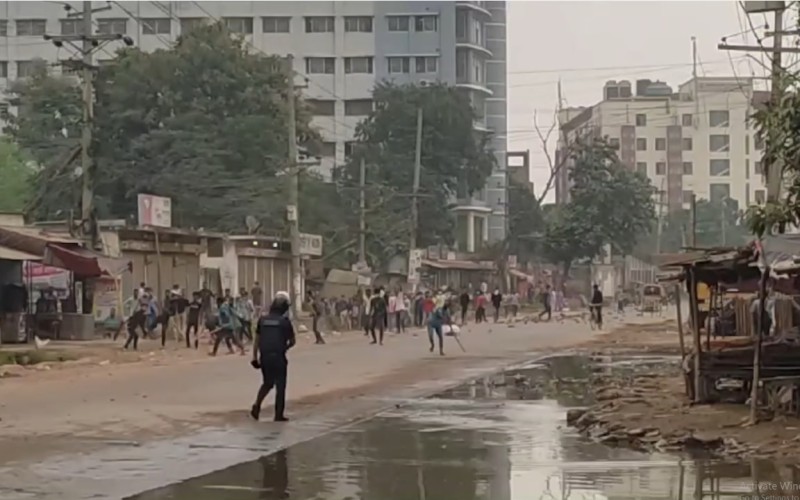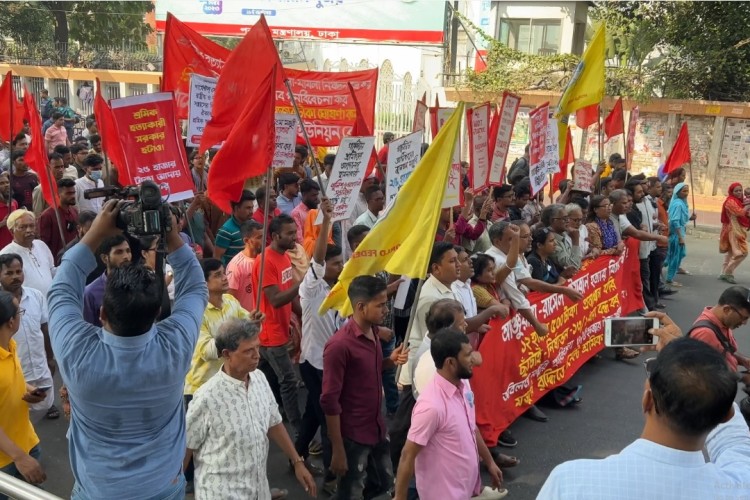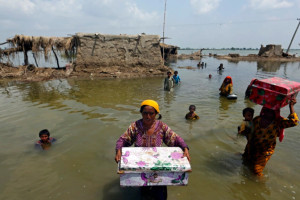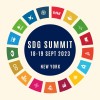RMG industry in Bangladesh is in dire condition because of repeated violent movements

"The prices of food items are so high. For example, a kilogram of Radish now costs nearly one hundred Taka, which was only twenty Taka," Sonia said, adding that they would die of starvation shortly if the government did not control the price hikes of necessary food items.
More than four million people, primarily needy women hailing from different remote areas of Bangladesh, are working in the country's main exporting sector, the readymade garment industry.
Around 3,500 garment factories in the South Asian Delta nation of nearly 170 million people account for about 85 percent of the country's $55 billion annual exports.
Hundreds of thousands of female garment workers in Bangladesh carry almost the same humanitarian stories as Sonia. They are somehow trying to survive depending on the country's booming RMG sector.

Most of them are leading a suffocating life because of unbridled jumps in prices of basic human needs in the last couple of years, prompting them to join in violent street movements in demand of better wages.
In the last two weeks, at least four RMG workers were killed while dozens of others were injured in a series of clashes with the police while staging street movement in the capital, Dhaka, and neighboring Gazipur District.
Why violent movement?
RMG workers in Bangladesh know very well that any untoward incident in the country's central exporting sector will, first and foremost, affect them. They have taken the RMG facility as a blessing for them as tens of thousands of unskilled people, mainly women in remote areas of the country, can easily manage a job in the sector and somehow survive.
But why, then, do a good number of those workers frequently come to the streets and commit violence in demand of better wages?
"The prices of food items have been increasing rapidly that we can't even manage normal vegetables and rice for our family members. Fish, meat, or other delicious foods are a distant dream to us," Kalpona Akhter, 40, another female garment worker, said.
She added that they had no way but to come to the street as their monthly minimum wages should be increased to a satisfactory level, keeping pace with the inflation, and the prices of essential food items must be controlled.
In the last two weeks, the situation has worsened a lot due to the harsh police retaliation against the agitated workers.
Worried about the future of children
Many garment workers live in the urban areas near the factory sites, leaving their children in remote villages. They cannot rent big houses for their children and other family members in the city areas due to higher living costs.
After immense struggles and sub-human life in the city areas, they save money for their children in the village. They dream of educating their children, but the lack of parental care and poverty create barriers to their dreams.
While talking, Kalpona Akhter was crying, remembering her two children in the village sitting at the corner of her tiny room in a Dhaka slum called "Sattala Basti."
Most garment workers, especially females, are mentally worried, and they quickly take life risks to gain any opportunity to increase their monthly income. As a result, they frequently come to the streets in response to the call for movement over better wages.
An open secret reality
The labor cost in the RMG sector is the lowest in Bangladesh in the world. As a result, the European and Western nations chose Bangladesh to order RMG products at the cheapest rate. Considering this reality, many RMG factories have been developed in the country in the last four decades, and the sector has been assumed to be the primary exporting tool.
Many NGOs and rights activists have been protesting it, claiming it is a human rights violation. Interestingly, they do not criticize the rich nations who import RMG products from Bangladesh at the cheapest rate.
Due to the lack of bargaining capability of Bangladeshi RMG owners and the government, the developed nations have been using the country to order RMG products at the cheapest rates year after year.
Labor rights activists and NGOs are also taking donations from various international sources to uphold the movement of workers' rights, especially female RMG workers. They mostly put pressure on garment owners to increase workers' monthly wages with little consideration for whether the owners are competent to increase the salaries to such a high level as expected.
So, it is the harsh reality in Bangladesh's garment industry that different interest groups use the sentiments and needs of needy workers to flourish in their destiny.
Akhter Hossain Apurbo, Vice President at Bangladesh Knitwear Manufacturers and Exporters Association (BKMEA), told this journalist that most of them are demonstrating or agitating against this price or minimum wages are not honest workers.
"You have to think that there is something behind it. Someone is playing a game behind this agitation, not the real workers actually," Apurbo said, adding that after China, Bangladesh is the second producer of RMG products globally. So, Bangladesh has many competitors in the sector who are trying to destabilize the industry.
He called on the workers not to do anything that may destroy the whole sector. "If the factories are closed, the workers will be the first victims of it and who do they demand for a better increment then?"
Special schemes for RMG workers
In the wake of rising tensions and violent workers' movement, the State Minister for Labor and Employment, Monnujan Sufian, promised family cards would be issued to garment workers for purchasing food items at lower costs while declaring the minimum monthly wages for RMG workers on November 7, 2023.
She said, "A family card will be served for every family. Whatever members belonged to a family, a single card would cover them all. Later, as per the direction of the Prime Minister, we will start rationing facilities."
The authorities declared the minimum monthly salary at Taka 12,500 or approximately 114 USD for garment workers in Bangladesh. Union leaders have rejected the new minimum wage. The current minimum monthly salary is Taka 8,000 or nearly 73 USD.
Nazma Akter, President of the United Garment Workers Federation, said that the cost of living was very high, and people couldn't afford it, especially garment workers.
She called on the authorities to mobilize public hospitals, educational institutes, and housing systems near the RMG industrial areas with cheaper rates for the workers to ease the prevailing tensions and for a sustainable solution to the crisis.




















